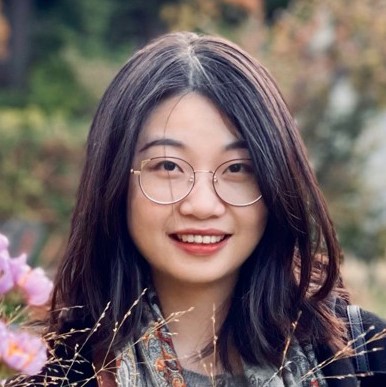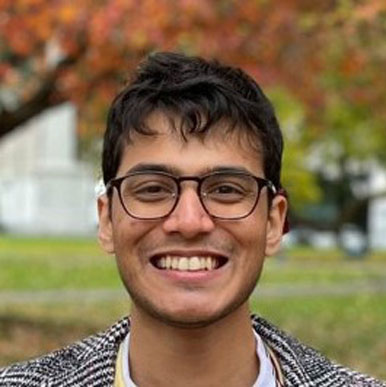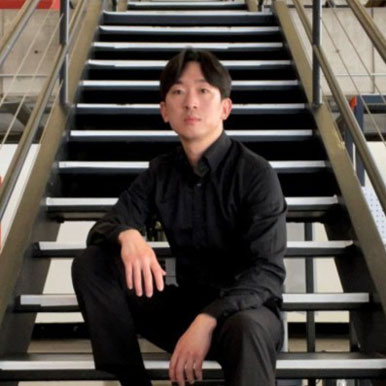Honoring Our Students
Thanks to generous support from our community, the GSD has been able to recognize exceptional scholarly achievement, leadership, and service by future design leaders throughout the school.
Student prizes are essential to ensuring that future design leaders have every opportunity and confidence to reach their full potential. The larger GSD community has gone above and beyond to create this support for our students, who are seizing the chance to make their mark on the world of design and set the stage for a more resilient, just, and beautiful world. Read on to learn more about the outstanding student prize winners from this academic year.
Peter Walker and Partners Fellowship for Landscape Architecture
Scarlet Rendleman MLA ’22 & Liwei Shen MLA ’22
This fellowship supports travel and study for a graduating GSD student to advance their understanding of the body of scholarship and practices related to landscape design. The prize was awarded to two recipients—Scarlet Rendleman and Liwei Shen—who both fully embrace the fellowship’s intent, with plans to explore various landscapes and corners of the world. As Scarlet put it, “My friends and family will remark that one of my favorite activities is traveling, and the more foreign the land, the better.”
With most of her childhood immersed in the southwestern U.S., Scarlet is adamant about the ethics of environmental stewardship and the implications for community health. Her experiences range from engaging elected and tribal leaders in Northern New Mexico around economic development initiatives and nuclear waste remediation to codesigning and organizing events along the Black Belt in Georgia to documenting the experiences of African-American residents affected most by the legacies of social, economic, and environmental injustice. Using her background in community service abroad in Peru and Brazil and undergraduate study in urban planning at the University of New Mexico, Scarlet endeavors to elevate design as a platform for collective healing, environmental literacy, and rehabilitation.
To dive deeper into her interest in complex topography, anthropology, and atmospheric science, Liweh will use the funds for travel and research in middle and east Asian countries to explore the social and spatial atmospheric aesthetics in response to climate change risks. Liweh, who earned her bachelor’s degree in architecture from the Huazhong University of Science and Technology in Wuhan, China, plans to seek local communities which differ in geology, hydrology, and culture but in a similar climate change trend to be warmer and wetter. Her interest lies in how the atmospheric system connects these places and how these separated indigenous groups maintain their spiritual identity and build and extend reciprocal hydrology into the atmosphere. Her fellowship travel will build upon her graduate thesis, “The Echoes of Sky River – Two Pre-modern and Modern Atmospheric Assemblages,” which received the 2022 Landscape Architecture Thesis Prize.
Daniel L. Schodek Award for Technology and Sustainability
Gabriella Perry MDes ’22 & Indrajeet Haldar MDes ’22
This award honors the memory and legacy of Professor Daniel Schodek and the standards of excellence he established during his 40 years of teaching and mentoring at the GSD. The award is given annually in recognition of the best Master in Design Studies thesis in the area of technology and sustainable design.
For her thesis, Gabriella built the “Croche-Matic,” a robot for crocheting 3D spherical objects. This novel machine can successfully complete stitches never done by machine. With her work primarily focused on digital fabrication and creating new ways to make things, which intersects the disciplines of design and engineering, Gabriella is embarking on a full-time role after graduation as a Design Technology Specialist for Rivian.
Indrajeet’s thesis “On the Mathematics of Memetics” spanned sociology, computation, and information design to develop richly articulated models of how online communities create trust. In that research, she examined online social spaces—specifically Reddit—and their manipulations of ideological economies, and how designers can endeavor to build sustainable digital spaces.
Clifford Wong Prize in Housing Design
Brian Lee MArch ’22
This prize is awarded for the multi-family housing design that incorporates the most interesting ideas and/or innovations that may lead to socially-oriented, improved living conditions. Brian’s winning thesis, “People’s Park Complex: Repairing the Modern City,” explores the role of the addition as an alternative and stealthy form of preservation for the People’s Park Complex, a typological archetype of modernist housing in Singapore. Eschewing the tendency to demolish aging midcentury projects and without the benefit of government subsidy, the design proposes an architectural prosthetic that heroically invigorates the old through the new. The strategy leverages the iconic status of the complex to diversify unit types, rehabilitate dysfunctional accessibility, and introduce a much-needed middle scale of semi-public space.
Peter Rice Prize
Hangsoo Jeong MArch ’22
This prize honors students of exceptional promise in the school’s architecture and advanced degree programs who have proven their competence and innovation in advancing architecture and structural engineering. Hangsoo has consistently and creatively integrated structural design in his academic work, including his thesis, “Upon Concrete: Retrofitting Architecture with Malleability.” His thesis considers how retrofitting existing concrete structures with zinc-plated steel reinforcements can significantly elevate the structural elements and endow built environments with more flexibility and adaptability.
For any questions on student prizes, please contact Courtney Ward.





